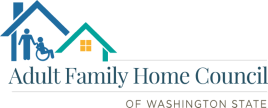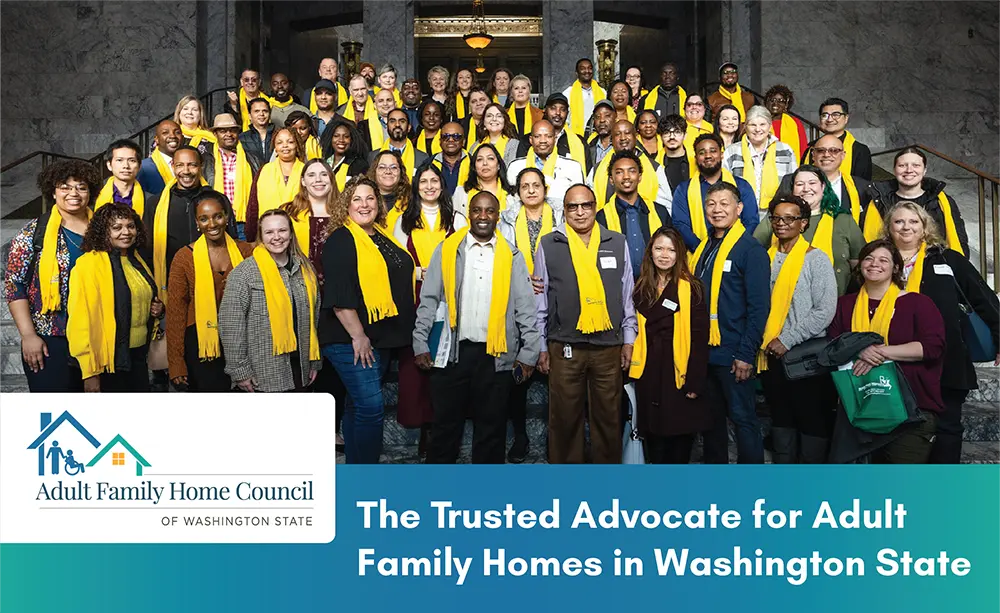
There's a WAC for That!
Disclosure of Charges and Security Deposits
As an adult family home provider, it’s crucial to adhere to the Washington Administrative Code (WAC) regulations to ensure transparency and protect resident rights. Here’s a brief overview of the key requirements from WAC 388-76-10540 and WAC 388-76-10561 regarding disclosure of charges, notice requirements, and handling of deposits.
Disclosure of Charges and Notice Requirements
(WAC 388-76-10540)
1. Disclosure of Fees: Before accepting any admission fees, deposits, or other charges, you must provide a written disclosure in a language the resident understands. This disclosure should detail:
- The amount and purpose of any fees or charges.
- Conditions under which funds may be retained if the resident dies, is hospitalized, transferred, or discharged.
- The home’s advance notice or transfer requirements.
- Refund policies for any deposits or charges if the resident leaves the home.
2. Refund Policies: If a resident dies, is hospitalized, or transfers to another facility and does not return, you must:
- Refund any deposits or charges, minus the per diem rate for days the resident stayed or reserved a bed.
- Retain an additional amount for reasonable expenses incurred due to the resident’s move, up to five days’ per diem charges, unless advance notice was given.
- Provide all refunds within 30 days of the resident’s discharge.
3. Prohibited Retentions: You cannot retain funds for reasonable wear and tear or for any reason that violates RCW 70.129.150.
- Refund any deposits or charges, minus the per diem rate for days the resident stayed or reserved a bed.
- Retain an additional amount for reasonable expenses incurred due to the resident’s move, up to five days’ per diem charges, unless advance notice was given.
- Provide all refunds within 30 days of the resident’s discharge.
Resident Security Deposit Account
(WAC 388-76-10561)
1. Interest-Bearing Accounts: Any funds exceeding $100 paid as a security deposit or prepayment must be deposited in an interest-bearing account separate from the home’s operating accounts. All interest earned must be credited to the resident’s account.
2. Account Management: Ensure that:
- Resident funds are not mixed with the home’s funds or other residents’ funds.
- Separate accounting is maintained for each resident’s share if funds are pooled.
- The account is held in a financial institution as defined by RCW 30A.22.040.
- Residents are notified in writing of the depository’s name, address, and location.
By following these guidelines, you can ensure compliance with state regulations, protect resident rights, and maintain transparency in financial dealings. Always keep your disclosures clear and your financial practices above board to foster trust and avoid potential citations.
Related WACs
WAC 388-76-10540
Resident rights—Disclosure of charges—Notice requirements—Deposits.
(1) If the adult family home requires an admission fee, deposit, prepaid charges, or any other fees or charges, by or on behalf of a person seeking admission, the home must include this information on the disclosure of charges form in writing in a language the resident understands prior to its receipt of any funds.
(2) The disclosure must include:
(a) A statement of the amount of any admissions fees, security deposits, prepaid charges, minimum stay fees, or any other fees or charges specifying what the funds are paid for and the basis for retaining any portion of the funds if the resident dies, is hospitalized, transferred, or discharged from the home;
(b) The home’s advance notice or transfer requirements; and
(c) The amount of the security deposits, admission fees, prepaid charges, minimum stay fees, or any other fees or charges that the home will refund to the resident if the resident leaves the home.
(3) If the home does not provide the disclosures in subsection (1) of this section to the resident, the home must not keep the resident’s security deposits, admission fees, prepaid charges, minimum stay fees, or any other fees or charges.
(4) If a resident dies, is hospitalized, or is transferred to another facility for more appropriate care and does not return to the home, the adult family home:
(a) Must refund any deposit or charges paid by the resident less the home’s per diem rate for the days the resident actually resided, reserved, or retained a bed in the home regardless of any minimum stay policy or discharge notice requirements;
(b) May keep an additional amount to cover its reasonable and actual expenses incurred as a result of a private-pay resident’s move, not to exceed five days per diem charges, unless the resident has given advance notice in compliance with the home’s admission agreement; and
(c) Must not require the resident to obtain a refund from a placement agency or person.
(5) The adult family home must not retain funds for reasonable wear and tear by the resident or for any basis that would violate RCW 70.129.150.
(6) The adult family home must provide the resident with any and all refunds due within thirty days from the resident’s date of discharge from the home.
(7) Nothing in this section applies to provisions in contracts negotiated between a home and a certified health plan, health or disability insurer, health maintenance organization, managed care organization, or similar entities.
(8) The home must ensure that the notice of rights and services is consistent with the requirements of this section, chapters 70.128, 70.129, and 74.34 RCW, and other applicable state and federal laws.
WAC 388-76-10561
Resident rights—Resident security deposit account.
(1) Funds in excess of one hundred dollars that are paid to an adult family home as a security deposit or as prepayment for charges beyond the first month’s residency must be deposited by the adult family home in an interest-bearing account that is separate from any of the home’s operating accounts and that credits all interest earned on the resident’s funds to that account.
(2) The adult family home must:
(a) Provide a record of the account when requested by the resident, the resident’s representative, or the department;
(b) Ensure the resident’s funds are not mixed with the home’s funds or with the funds of any person other than another resident. If an account pools resident funds, there must be a separate accounting for each resident’s share;
(c) Ensure that the account(s) are held, and remain until a resident refund occurs, in a financial institution as defined in RCW 30A.22.040; and
(d) Notify the resident in writing of the name, address, and location of the depository.
Not a Member Yet?
Membership fees enable the Council to cover legal expenses and fund staff to advocate with the state and regulatory agencies. The participation of every adult family home is vital to ensuring fair regulations and rates that accurately reflect the costs of caring for our vulnerable adults. Consider becoming a member of the Council to help us continue improving conditions for all adult family homes in Washington State.

